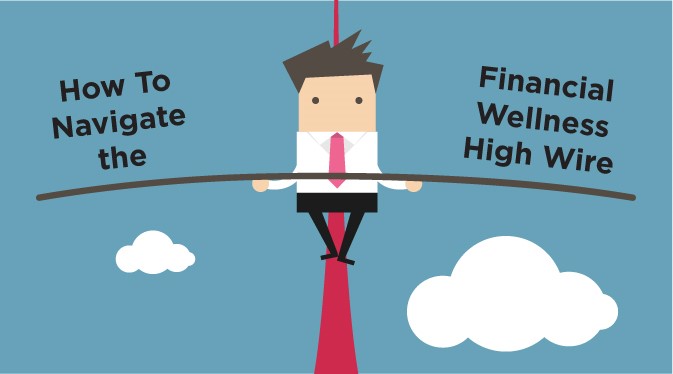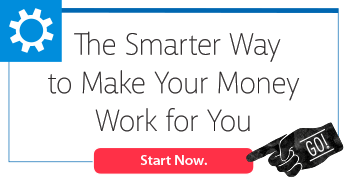Life is full of balancing acts. One of the most precarious can be pursuing enough money to meet your needs and still find balance in other areas of your life. When we get it right it’s no longer a balancing act, but a blending and maintaining of wellness in all areas—physical, mental, emotional, and spiritual. Think about what really makes you happy. When you incorporate all of the areas of wellness, you have the freedom to chase that joy—and that’s the only way money can buy happiness.
You can get started by evaluating your priorities and defining your needs versus your wants. Then change your financial habits and strategy accordingly. The website Man vs. Debt offers a multitude of good ideas for creating balance and blending. Below are a few of our favorites with a Paradigm Life spin.
Prioritize
The first step to balancing money and happiness is to get your head straight when it comes to what you really need. Let’s get down to the basics. For most of us it’s pretty easy to see that food, housing, utilities, transportation, and clothing are needs. But with today’s available luxuries it’s easy to get confused about what “need” really means—you can quickly enter a gray area.
Food –Though food is an absolute need, ask yourself how much nourishment and enjoyment per dollar you’re receiving. Does it feel balanced to you? Easy tip: Most would agree that desserts and eating out falls into the wants side of the equation.
Housing–Stating the obvious, a roof over your head is essential for your physical wellbeing but also your mental wellbeing. When you feel safe you have a lot more to offer society. But let’s look at it from the other direction. Are you “house poor?” Is your rent or house payment stifling other areas of your finances? How do you feel when you make that payment—thankful or stressed?
Utilities–Most of us don’t go hog wild on the utility bills, but aside from nagging your kids to turn out the lights, are there other ways you could be saving on electricity or heat? Ask yourself where need meets luxury. For the first month just notice, then the next month take action if needed. And remember, of course, the larger your house, the larger your utility bills will be–just something to think about.
Clothing–Here’s a great area to examine needs versus wants. Not many people in the U.S. go without access to adequate clothing, so apart from that most clothing is a want. And that’s okay unless you use the “need” for clothing as justification for the exorbitant. Often a closet purge will help you visualize the difference between clothing needs and clothing wants.
Transportation–Another area where it gets uncomfortable fast. Reliable transportation doesn’t necessarily mean a car. But when it does, we recommend you define your needs and wants in a car just like you’re doing in other areas of your life. Easy tip: A nice car is fine, as long as you still have the balance. You can easily measure balance here by how you feel if and when you make a payment.
Too many of us get in the habit of perpetually justifying our wants in our lives as needs. After you prioritize (in writing) what you really need, you should feel comfortable spending on things you want as long as you’re maintaining the balance. Again, a good measurement of balance is the way you feel when you pay a bill or purchase something. If you’re stressed, it’s time to reevaluate.
Simplify
Now that you’ve discovered your needs and priorities, it’s easier to simplify your finances. By simplify we mean automate, but we also mean cut any non-essential things that don’t bring you joy. You’d be surprised how quickly you can assess what needs to go with that simple qualification. Here are some ways to automate, clean up, and cut what stands between you and balance:
Get out of the debt trap. Though it can seem daunting or near impossible to pay off, riding the snowball of debt will continuously stifle your chances for happiness. Paradigm Life can help you get rid of consumer debt completely. We recommend using the Perpetual Wealth Strategy—a ray of hope in the debt storm. Read our blog on consumer debt to learn more about the strategy, and don’t forget to sign up for the free eCourse below.
Consolidate your accounts. Likely, you do not need four personal checking accounts or three separate retirement accounts. Consolidating accounts where you can means less time juggling statements and money.
Go paperless where you can. When you get electronic statements (and if you can, use auto payments) you eliminate paper bills in your mailbox. It’s an emotional lift when you don’t think about bills every time you get the mail.
Automate and forget it. Take advantage of online bill paying services. Direct deposit your paycheck. Ensure your accounts are properly linked. We recommend streamlining the process of paying your bills to the click of a button, but maintain control of authorizing the payments each month. This allows you to scrutinize bills for errors or changes in service without getting knee-deep into the mechanics of bill paying.
Pay bills in advance. Sometimes you can pay 3, 6, or even 12 months at a time. Easy tip: Paying a year’s worth of electricity with one tax return allows you to re-allocate bill money to pay down your debt or pay off your car.
Filter your financial advice. While you keep an open mind, find financial inspiration and a strategy that speaks to you and stick to the plan. The Perpetual Wealth Strategy recommended at Paradigm Life can help you protect your family, save for retirement, and access your cash at the same time.
Donate two items for every one you buy. Maintaining this frame of mind allows you to scrutinize your purchases while letting go of what you no longer need. You can also turn your donation into a tax deduction at tax time.
Don’t take your abundance for granted. When you look at what you already have, your needs are likely already met. When you take a breath of gratitude for what you already have, it makes the expensive coffee taste even better and your sweet ride even sweeter. When you appreciate the abundance in your life, you are instantly wealthy regardless of your income.
The most poignant lesson we can take from this is that money and happiness are not opposing forces. When your efforts toward money work together with other aspects of your life, you’re more integrated in all areas of wellness—a subtle but important piece to holistic wealth.
Our goal at Paradigm Life is to help people find their personal definition of holistic wealth. We want to share a model with you called the Perpetual Wealth System that allows you to grow your wealth, access cash value, and leave a legacy for your family. We are excited to invite you to take 2 minutes to sign up for a FREE, extensive eCourse called Infinite 101®. You’ll receive access to video tutorials, articles, and podcasts. It literally costs you nothing to become educated on this ideal financial strategy and start changing your wealth paradigm!
Take advantage of this FREE resource by clicking below.









